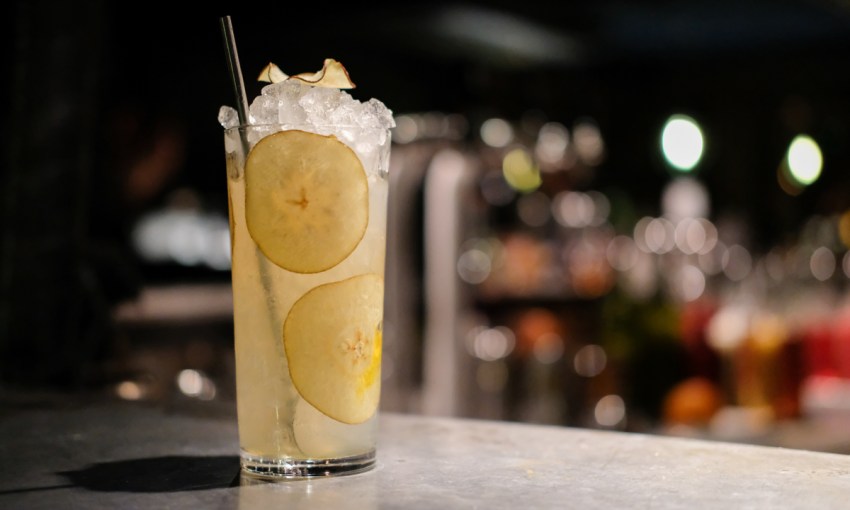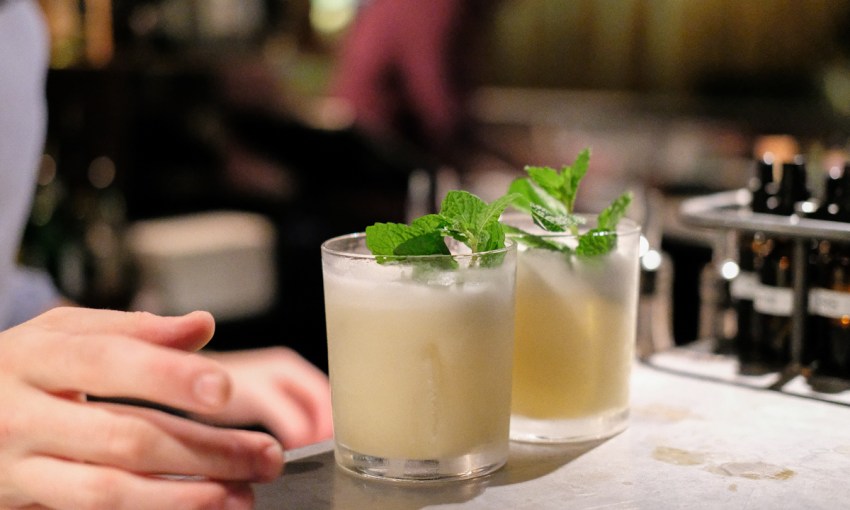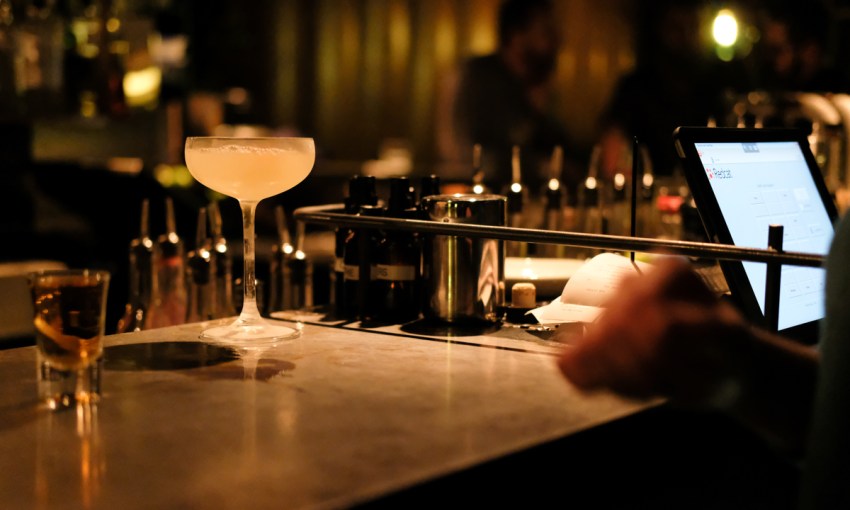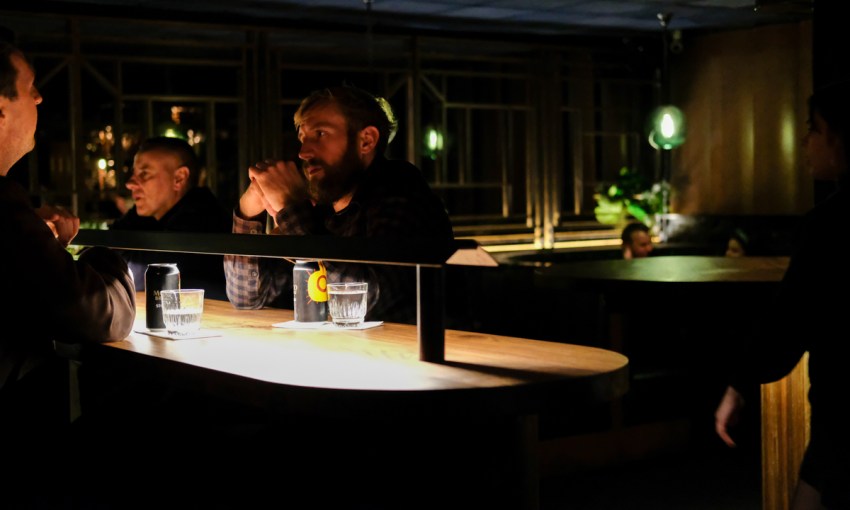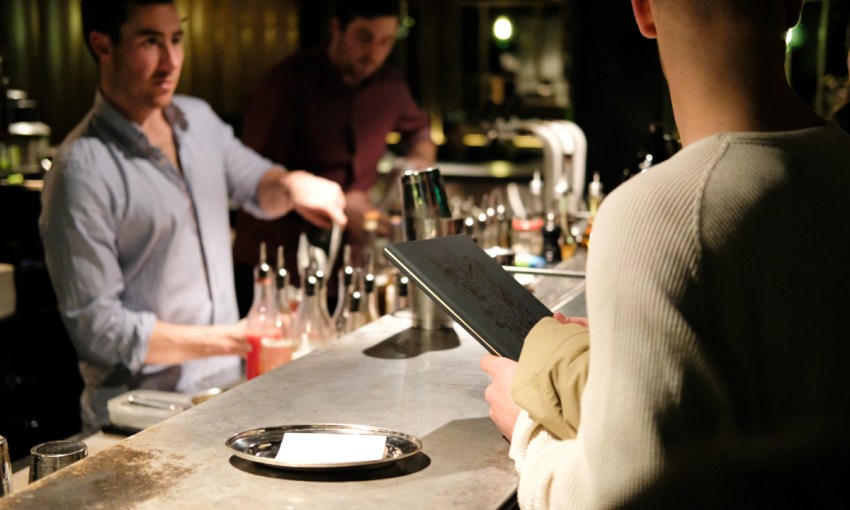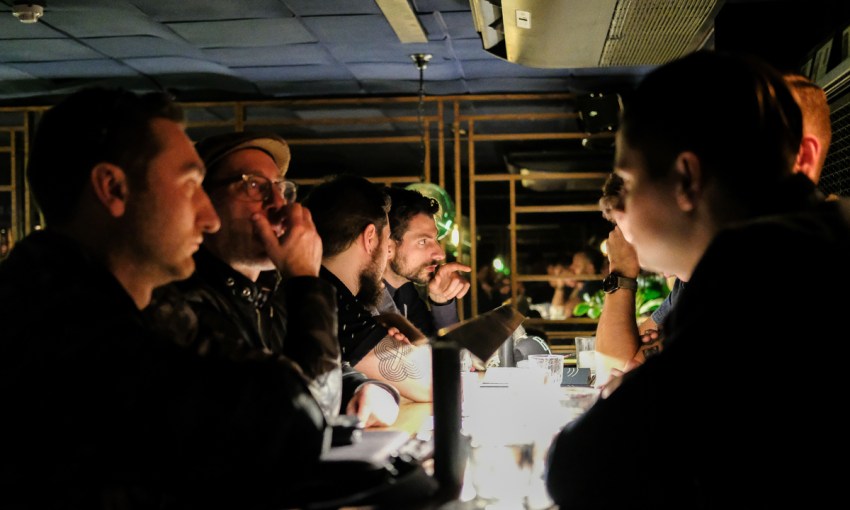With a renovated fit out and highly re-tuned approach to service, Ollie Margan has transitioned one of Adelaide's best cocktail bars into a truly one-of-a-kind experience in the city.
The evolution of Adelaide cocktail bar Maybe Mae
At the turn of the city’s small venue licence in 2012, a shift occurred in the side streets of Adelaide, as cocktail bars started to proliferate throughout under-utilised spaces around town.
The newly refurbished Maybe Mae officially reopens to the public from 5pm Wednesday, 8 August.
The venue has also released a new 24-drink cocktail list to commemorate the occasion, which includes four non-alcoholic cocktails.
Clever Little Tailor, Udaberri, and Proof introduced a new standard for what patrons could expect from a drinking establishment, and a couple of years later Maybe Mae would sneak behind their hidden door between Leigh and Peel Streets and capture the attention of cocktail gourmands locally, and across the country.
Given this level of accomplishment, one might expect the venue’s fourth birthday this year to be cause for celebration, but instead, managing partner Ollie Margan saw an opportunity to reflect, recalibrate, and renovate.
“There’s a bunch of places that are getting to that four-, five-year-old mark, and when you get to that point, the shine’s come off the ball a little bit an you’ve got to focus on the people that have gotten you to that point,” Ollie says.
“We’re not going to be busy forever, we are really busy now, let’s cut while we’re ahead and do something that is gong to shift the dynamic of the place.”
Early this week, Maybe Mae underwent a minor refit that is designed to majorly reshape the way Adelaide barflies approach the venue, with Ollie shifting the bar into full-time table service.
Seating capacity has gone up from 50 seats to 75, while the overall capacity of the venue is reduced from 85 heads to 75, meaning one seat available for every human.
The metal dry bars running along the wall of the venue either side of the entrance have been removed and replaced with two long walnut tables; the water stations at the corner of each bar – now redundant due to the table service – have been replaced with round walnut tables, allowing a group to collectively sit within feet of the bartender; and stools will also run the length of the bar – except at the very front, where the POS system and cocktail finishing section sits in public space.
Switching to table service and offering visitors a sit-down evening is an almost counter-intuitive move for Ollie; like most venues around the city, Maybe Mae peaks on Friday and Saturday nights with rowdy revellers stopping by as part of a longer crawl, however, this refit will preference a quieter mood.
“I think there will be a slight change [of clientele], because it’s going to be a little bit less rowdy in there,” Ollie says.
“That Friday and Saturday night crowd, whilst it’s good for revenue, they’re not the people that are going to keep us afloat for 10 years, [and] we’ve limited our offering because of that six-to-eight hours across Friday and Saturday where we just don’t have the ability to sit there and have a proper conversation with people.
“If you compare it to the restaurant scene and you look at those Italian restaurants that just last forever and ever – you go there because of that lovely warm interaction that you get there, not because it’s the best gnocchi you’ve ever had in your life.
“That’s how you get longevity in your venue, it’s that interaction. For me, it’s worth investment.”
There has been debate around the saturation of the Adelaide small bar market essentially since the legislation was implemented, but this makes an unfair assumption of traders – that they’re unable to read the demands of the public and evolve their offering to suit.
Maybe Mae’s new direction demonstrates this not to be true, and shows that as our bar and cocktail scene matures, the venues and operators can choose to mature alongside it.
“For us, we’ve listened to what our people want and slowly pushed and pushed and pushed, and now we’re at a point where I think we’ve got a level of trust where we can do something a bit more ambitious,” Ollie says.
“When you do something interesting and good here that is considered and isn’t done on a whim, it’s done with some real thought behind it, people get behind it and support it. That’s what’s so great about Adelaide’s drinking and eating culture.”



